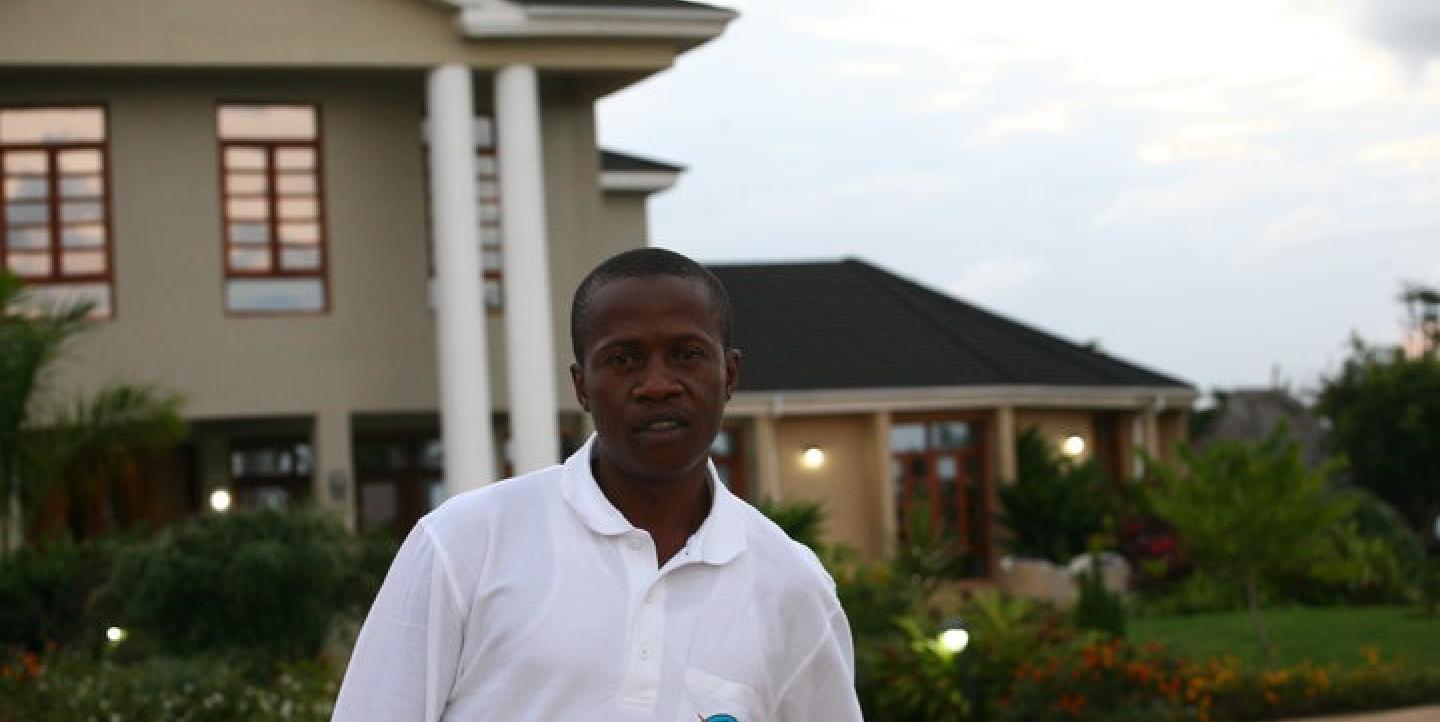Each month, IJNet features an international journalist who exemplifies the profession and has used the site to further his or her career. If you would like to be featured, email a short bio and a paragraph about how you have used IJNet’s resources to Dana Liebelson at dliebelson@icfj.org by April 20.
This month's journalist is Mnaku Mbani, a business journalist in Tanzania.
IJNet: What news organization(s) do you currently work with? Where have you worked in past?
Mnaku Mbani: I am currently working with Business Times Limited as a principal reporter and news editor. My main tasks are to generate news ideas, assign stories to reporters and edit submitted stories. I am also a senior reporter for NewsQuotes news agency, based in Brussels. This is a new organization that we started after finishing a financial journalism training conducted by the German Institution, the International Institute for Journalists.
In the past, I have worked for The Guardian Limited and for Mwananchi Communications Limited.
How have you used IJNet?
MM: All of the professional training courses I have attended from 2002 to 2009 I found through IJNet.
IJNet has been a gateway that has really helped me develop my career. Through IJNet, I managed to secure a Reuters training course in 2002 for business journalism. I have also attended financial and economic journalism training courses in Berlin, the U.S. and Nairobi that I found through IJNet. I am presently using the site to develop my reporting standards and I am studying for a diploma in business journalism at CTJT, which I found through IJNet. The site has also helped me to network with various professionals globally and I subscribe to the newsletter.
IJNet: When did you know you wanted to be a journalist? How did you get started?
MM: I dreamed of becoming a journalist since I was a teenager. Initially, I really wanted to become a radio presenter. My plan was always to apply for journalism school after finishing high school.
After entering journalism school, I realized that print journalism was more interesting to me than radio and I have written English-language stories ever since.
IJNet: How do you get your ideas for stories? Do you have a set routine for writing and reporting?
MM: I love to read. I also love to listen to the radio, mainly the international radio stations such as BBC, VOA, etc. Whenever I read a newspaper or listen to a broadcast, I am always thinking about how to expand upon the stories that are already published. Sometimes, I also draw my story ideas from real life. For example, when I go out shopping and find that there is an increased consumer price, I want to figure out why — and a new idea has emerged.
I also attend meetings, talk to people who give me tips and read business and government reports. I find it useful to visit websites such as those of the central bank, research organizations, IMF, World Bank, World Health Organization, UNCTAD, etc. I believe that stories are found everywhere and often start from home.
IJNet: What is your proudest work/story so far? Why?
MM: I have a lot of work I’m proud of, but I think my best story has been reporting on obesity in Tanzania. I had the idea that our public health was in crisis due to the increasing population of middle-income Tanzanians.
Getting fat has often been viewed as a good thing in many Tanzanian communities, but since the release of the article — which showed the health dangers of obesity — some people have really changed their lifestyles and eating habits.
IJNet: What advice would you give aspiring journalists? Are there any training programs or schools that were particularly useful to you?
MM: The journalism profession is changing so fast. Graduating from a journalism school is not enough proof anymore that a person will excel in this profession. I have seen so many graduates fail to catch up when the time comes for them to enter the job market.
I think that it’s important to take advantage of courses that allow journalists to specialize. There are so many organizations offering journalism training, such as Thompson/Reuters, International Institute for Journalists, Population Reference Bureau, World Bank etc. It’s really useful for journalists to choose a field, be it business, financial, political reporting or sports.
IJNet: How do you think journalists can best adapt to the changing media field?
MM: In Tanzania, print media is losing its prominence as most readers have opted to get their news through TV, the new medium in Tanzania. The emergence of blogs has also created a difficult moment for print media.
I believe that journalists have a chance to adapt to these changes by redefining the way they work. Career development training really is the best and only option that will enable journalists to adapt to the fast-changing world of media.

